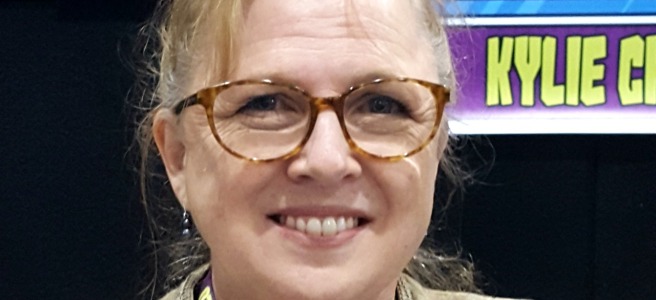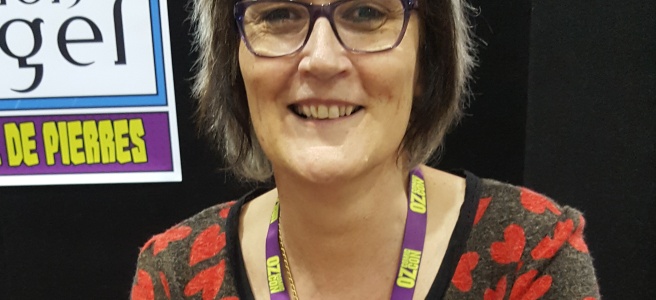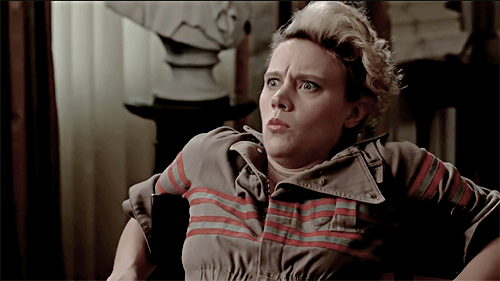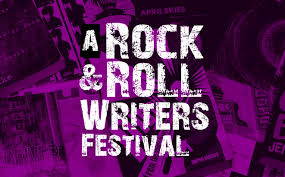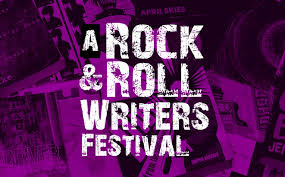Queenie Chan is a name in manga you should probably get to know if you don’t already. She’s worked with some fantastic authors in creating their graphic novels (including ‘Odd’, the prequel to Dean Koontz’s Odd Thomas), as well as illustrating and co-authoring the Fabled Kingdom trilogy. Queenie’s art is staggeringly good (not a shocker). While in Brisbane for Oz Comic-Con 2016, Queenie settled in for the Written, Drawn, Edited, and Published panel to chat about the business of writing and illustration with Kylie Chan.
Staring at a blank sheet of paper has never gotten my juices flowing. Go do something outside of your usual, everyday routine. Change your environment.
Routines are great, for a while. But eventually, the same things at the same time stop being helpful and start draining your creativity. You don’t need to only write with that one type of pen, or drink from that one particular cup. Try new things, stretch beyond the comfort zone, and see how quickly ‘writer’s block’ becomes a distant memory.
The publishing landscape changes. What worked for your heroes probably won’t work as well for you. Don’t worry too much about what others are doing, or have done. Instead, keep an eye out for opportunities. Trends can’t be manufactured. Do what you want to do, and do it well.
Everyone always asks writers how they got their big break, but the truth is that an ever-changing industry means it’s unlikely that same approach will still be useful now. That’s okay. There’s no one right way to get your foot in the door.
We talk a lot about writing to trends, but the truth is that those trends come and go, and especially in traditional publishing, by the time your book has hit the market, it’s highly likely that the trend you were chasing is long since over. Instead of trying to gamble on changing trends and audiences, write the stories you want to write, or chase the illustration work that you want to be doing. Don’t settle- do what you love, and do it well. Do it to the absolute best of your ability.
It’s uncommon for people to have one finished book, let alone multiple, when they pitch. Being able to sell your work is important, but if you don’t have anything to back it up with, you’ve just got a sales pitch.
Elevator pitches are great, but have something you can send to the publisher or agent before you start selling them on the project. Be prolific as possible while maintaining the highest quality of work you can. But don’t expect people to take on your unfinished work, and then chase you up for it into perpetuity. That’s not how the industry works anymore.
It’s great to have a sales pitch, but you really need to be able to follow through when the person you’re pitching to says yes.
It used to be true that self publishing had a taint about it. Publishers these days, if they see an author who treats it like it’s a business, they’re interested.
Gone are the days where writers were nurtured and coddled and begged for their work. These days, there’s an ever-growing community of writers waiting in the wings, their work ready to go. With so many people wanting their work published, a really good way to stand out from the crowd is professionalism. They want to know that you’re taking it seriously, and working hard to keep forward momentum. If they think you’re a diva who’ll need constant attention and chasing up for work? They’re far less likely to say yes to you.
Authors are expected to market their own books as well. Publishers are looking for partners now. If a number of people buy that book, they’re vouching for it.
Gone are the days when all an author had to do was focus on writing a good story. These days, authors need to be working to market their wares, rather than leaving it to those around them to do it for them. It’s one of the grey areas in the indie vs trad publishing debate: if a publisher is selling a hundred different titles, how much time and attention can they really give your book? And at what point is it a better financial decision to sell your book yourself, and bypass the red tape of traditional publishing?
Readers are important, because if you want to move from indie to traditional, they’re an invaluable source of street cred. If people are buying and reading your work, if there’s already an audience there, then publishers know they can market the book more easily.
Putting out work for free can be good, but may not translate into sales. Cons are a great way to test the water. Pitching to people and experimenting shows how popular it can be.
It also teaches you how to market to certain people. What a parent wants from a book for their kid is generally quite different to what that kid wants in a book. You have to target your pitch to your audience. Side note: I spoke to a couple of Con goers at Comic-Con this year, asking them what made a great sales pitch from the writers and illustrators.
For the illustrators, it was easy: a good variety of art from a range of fandoms has a better chance of catching a buyer’s eye.
For the writers, there were a few pointers:
Don’t scare the buyers. Bombarding them with conversation and questions, or shoving the book in their faces isn’t helpful. Be polite, and talk, but pay attention to their verbal and non-verbal cues before you launch into a ten minute conversation.
Don’t give away the entire plot. I’ve had a couple of authors do this when trying to sell me their books- and I’ve never felt the need to buy any of them. Why would I? I already know what’s going to happen. Your pitch shouldn’t be everything- give a taste of what’s to come, without the play by play descriptions.
Please let us leave. If someone says they’ve got to go, don’t try and hard-sell them or keep them there. Let them go. They’ll remember you far more fondly later on. A lot of Con goers said they did the rounds, saw what was on offer, then went back to buy what interested them, but if the seller was pushy, they didn’t go back.
Don’t assume girls want romance and boys want action. Some guys really dig the drama over the fight scenes, and quite a few women aren’t that interested in the romance genre. If someone asks whether or not a certain genre is in your book, answer honestly- you will get shitty reviews online if you’ve told them it’s a love story and there’s not a trace of romance to be found. Bad reviews tend to travel faster than good ones, especially if it’s a case of the author behaving badly.
A lot of people go out of their way to do complex outlines. For me, it sucks the energy away from your story. It can drain your capacity to create your main thing. What goes from page to finished product changes, and that’s a good thing.
Whatever works for you is what you need to be doing. But be aware that for some people, those complex world building exercises can be a way to procrastinate on the actual writing or plotting. They can also drain the motivation to write, because you’ve already so thoroughly explored the world your story is a part of.
For some people, too, having a detailed story bible can make it harder to change the direction of the story if it isn’t working- after all, you’ve put a lot of effort into it, and it can be hard for people to let that time and energy go.
There are good sides and bad sides to any planning system- get a feel for what works for you, and how well you cope with the downsides.
Be confident in your idea and your characters and your ability, and go with it.
This doesn’t need clarification, right?
Go through and highlight the important bits in your previous work before starting on its sequel.
If you’re writing a series, try to go back and re-read the earlier book (or books, if you have time). Highlight the important bits- the story arcs, the elements that need resolution, the character development and relationships. You don’t want to have Mary inexplicably married to Tom when she was married to Jonathan in the last story. If there’s going to be a heap of books in the series, you’re not going to have time to do that. So instead, keep track of the important bits you’ve highlighted with each book, and have a flick through those before reading the last book in the series. It’ll give you the overview without you having to read that first novel a thousand times.
Characters with a life of their own, that are well-developed, are the ones that surprise you.
For Queenie, this is one of those reasons not to get too heavily into the story bible and character profiling elements of writing. When we force our notions of what’s right onto a story or character, we often diminish the story we’re trying to tell. We’re rather controlling beasts, prone to forcing our ideologies onto innocent stories without even realising it. Giving the characters and the story space to grow and change can be the most effective way to tell a meaningful, engaging story.
You often get asked to take on a theme and make it yours. I went through my old stories looking for things that met that theme.
Trying to world build and create characters on the fly with a short deadline can be incredibly painful and stressful. Instead, try and look for established ‘verses you’ve played in before, and what minor characters could be useful in a new story arc. This way you still get to play in the sandbox you love, while building it a gradually widening audience.
You need an emotional connection to develop, but it can make it hard to shift into the concepts you’re asked for by publishers.
You need to care about your work to be doing what you love. But doing what you love with an incredibly niche focus isn’t overly great for the mortgage repayments. So you need to find ways to connect to concepts you’re asked to explore, even if they’re not ones you normally work with.
That’s not saying you have to say yes to concepts you’re morally opposed to, of course, because that’s not doing what you love, either. But finding ways to stretch your comfort zone little by little is incredibly helpful.
The audience has an idea of what they want, and suspension of disbelief can be broken if they don’t get it.
While playing with certain tropes in a genre is fine, even encouraged, there are certain things that need to happen to have it called, say, a Western. You need lawless spaces, rural settings, cowboy styled heroes. Can it work in, say, urban action? To an extent, sure- how many action flick heroes are called cowboys or mavericks by other characters, after all- but it’s an urban action with Western styling, not a Western. There’s a line between bringing something new, and misnaming something. Try to avoid misnaming.
All reviews, good or bad, are publicity. Never argue with a bad review. Do not react to a bad review!
Seriously, if you haven’t already, Google ‘authors behaving badly’. Don’t do what you read about there. Don’t be the writer terrorising readers who didn’t absolutely adore their work. No one is obligated to love what you write, the same way you clearly don’t like what a reviewer has to say.
Readers are smart enough to give books a chance, regardless of a single bad review. Let it go.
Have a professional, well designed business card. Give it out everywhere. Have them with you always. People are a lot more likely to keep business cards because it feels like a business, rather than personal, encounter. And let your website be your calling card. Have a good website, because people come back to it.
We respect networking more than socialising, because it sounds more productive and official. A professional, friendly demeanour can go a long way, and having the right props is incredibly useful, too.
Having said that, do the best you can with what you can afford. If you can afford fancy, and that’s what you want, go for it. If you can’t, work with what you’ve got. You can upgrade as your finances chance, or after you’ve decided that yeah, you’re sticking with this blogging lark a while longer.


